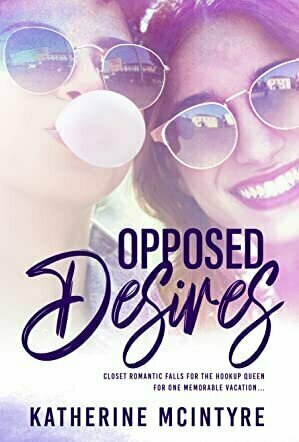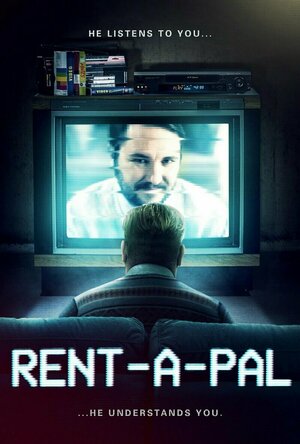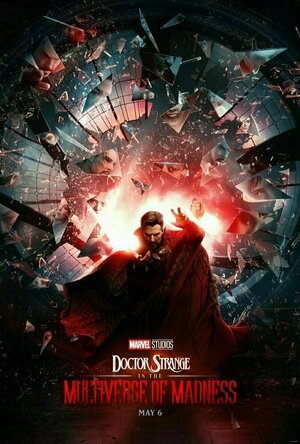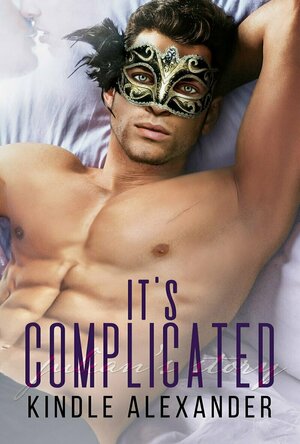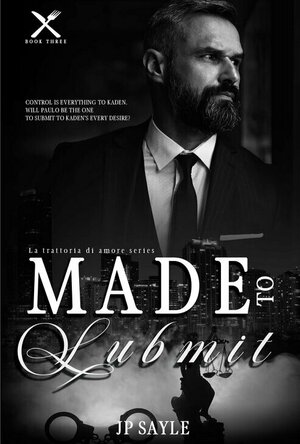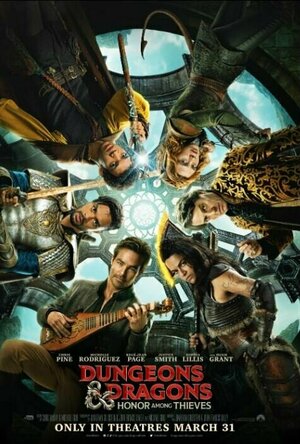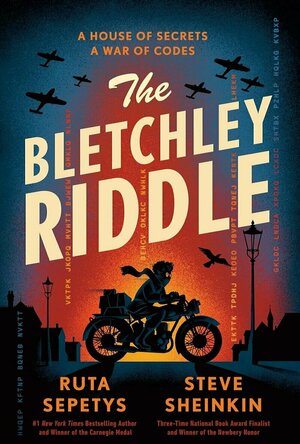Search
Search results

Sky Sports Score Centre
Sports and Entertainment
App
The Sky Sports Score Centre app is your go to app for live football scores and watching Premier...
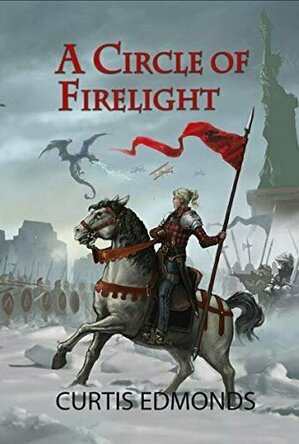
A Circle of Firelight
Book
The execution is for the most part charming and clever, with lively dialogue, easy pacing, and...
Debbiereadsbook (1669 KP) rated Opposed Desires (Rehoboth Pact #2) in Books
Nov 18, 2021
love that we had to wait for Seina to give in!
Independent reviewer for Archaeolibrarian, I was gifted my copy of this book.
This is book 2 in the Rehoboth Pact series, but it's not necessary to have rea book 1, Confined Desires, before this. Not necessary, but I would strongly RECOMMEND you do. Aubrey revokes the Pact in that book, and you need to know why.
Aubrey is a player. She goes out and gets one she wants, and there are no repeats. She is the polar opposite of Selina, who would rather go without than do what Aubrey does. In a moment of something totally out of character for BOTH these women, there is a fundamental shift in their relationship. But this is a vacation, and the real world encroaches.
I really enjoyed book 1, and I really enjoyed this one, for different reasons.
This is HEAVY on the emotional aspect from both these women. Aubs mum is ill, and she is worried that things are really bad again. Selina is lonely: she wants someone to love her, just as she is. And I cried a bit for both Aubs and Selina, I really did. They are both a little bit broken by their life experiences and actually talking to each other, rather than sniping at each other, starts them on a path neither is quite prepared for.
I love love LOVED that I had to wait for Selina to give in to Aubrey. But equally than AUBREY was the one who really wanted to wait. Aubrey usually had a different girl every night, but a whole vacation week, without a single one? Totally unheard of and I loved that her friends noticed. The smexy stuff is not especially explicit, but I'm finding I like that in these books. There is more to a relationship than sex and these women are finding that.
Skye and Mia (from book 1) are here, but also Kyle, who is the third in this little trio of friends. We didn't meet her before and she has a tale to tell, I can feel it. Her book is next, but not til bloody January! Kyle revokes the Pact here.
creeping up to 4.5 stars, (but rounding down to 4 for the blog, sorry!) can't quite stetch to five, but maybe Kyle can squeeze that extra bit outta me!
*same worded review will appear elsewhere
This is book 2 in the Rehoboth Pact series, but it's not necessary to have rea book 1, Confined Desires, before this. Not necessary, but I would strongly RECOMMEND you do. Aubrey revokes the Pact in that book, and you need to know why.
Aubrey is a player. She goes out and gets one she wants, and there are no repeats. She is the polar opposite of Selina, who would rather go without than do what Aubrey does. In a moment of something totally out of character for BOTH these women, there is a fundamental shift in their relationship. But this is a vacation, and the real world encroaches.
I really enjoyed book 1, and I really enjoyed this one, for different reasons.
This is HEAVY on the emotional aspect from both these women. Aubs mum is ill, and she is worried that things are really bad again. Selina is lonely: she wants someone to love her, just as she is. And I cried a bit for both Aubs and Selina, I really did. They are both a little bit broken by their life experiences and actually talking to each other, rather than sniping at each other, starts them on a path neither is quite prepared for.
I love love LOVED that I had to wait for Selina to give in to Aubrey. But equally than AUBREY was the one who really wanted to wait. Aubrey usually had a different girl every night, but a whole vacation week, without a single one? Totally unheard of and I loved that her friends noticed. The smexy stuff is not especially explicit, but I'm finding I like that in these books. There is more to a relationship than sex and these women are finding that.
Skye and Mia (from book 1) are here, but also Kyle, who is the third in this little trio of friends. We didn't meet her before and she has a tale to tell, I can feel it. Her book is next, but not til bloody January! Kyle revokes the Pact here.
creeping up to 4.5 stars, (but rounding down to 4 for the blog, sorry!) can't quite stetch to five, but maybe Kyle can squeeze that extra bit outta me!
*same worded review will appear elsewhere
Kim Pook (101 KP) rated Rent-A-Pal (2020) in Movies
Nov 1, 2022
A man sits down to watch a vhs tape, it looks like one of those dating videos you used to be able to get years ago before the Internet. He fast forwards a few women but doesn't find any who takes his interest, so he sets about his daily tasks of taking care of his elderly mother with dementia and the household chores, before heading out to re record his own dating video.
Whilst collecting a few more dating profiles, he finds a tape called 'rent a pal' which promises that whoever watches will have a new best friend. Being someone who is lonely he decides to purchase the tape. He plays a little of the tape when he gets home before stopping it and watching a movie with his mum instead.
After putting his mum to bed he heads back to the basement to continue watching his new tape, he decides to talk to the guy on the tape as if he can hear him and passes out drunk.
The next day he finds out he got a match on his dating profile and goes to the store to collect the video, however, he forgets his wallet and goes back home to collect it, but when he returns, his match had already matched with someone else. He asks to take the video home anyway, so he could see what he missed.
He is devastated to see that the girl had similar interests to him and was also a carer. He soon turns to his rent a pal video again to talk to it like a real person. Eventually he is watching it over and over again each day, to the point where it becomes an obsession. Even when he goes on a date, he comes home to tell the video about his day and starts letting the guy in the video dictate his life.
It is a very strange movie, the guy in the video isn't actually talking to him but he pretends he is and even calls him his best friend!! It is a well acted movie though, especially by the woman playing David's mother, she really is believable in playing a woman with dementia. It's definitely one of those movies where you become drawn in and eager to see how it ends, but I wouldn't watch it again.
Whilst collecting a few more dating profiles, he finds a tape called 'rent a pal' which promises that whoever watches will have a new best friend. Being someone who is lonely he decides to purchase the tape. He plays a little of the tape when he gets home before stopping it and watching a movie with his mum instead.
After putting his mum to bed he heads back to the basement to continue watching his new tape, he decides to talk to the guy on the tape as if he can hear him and passes out drunk.
The next day he finds out he got a match on his dating profile and goes to the store to collect the video, however, he forgets his wallet and goes back home to collect it, but when he returns, his match had already matched with someone else. He asks to take the video home anyway, so he could see what he missed.
He is devastated to see that the girl had similar interests to him and was also a carer. He soon turns to his rent a pal video again to talk to it like a real person. Eventually he is watching it over and over again each day, to the point where it becomes an obsession. Even when he goes on a date, he comes home to tell the video about his day and starts letting the guy in the video dictate his life.
It is a very strange movie, the guy in the video isn't actually talking to him but he pretends he is and even calls him his best friend!! It is a well acted movie though, especially by the woman playing David's mother, she really is believable in playing a woman with dementia. It's definitely one of those movies where you become drawn in and eager to see how it ends, but I wouldn't watch it again.
LeftSideCut (3776 KP) rated Doctor Strange in the Multiverse of Madness (2022) in Movies
May 11, 2022
I've taken a few days since seeing Multiverse of Madness to try and digest it as a whole, and decide how I felt about it. It's certainly wild, and leaves a hefty impression. My initial reservations stem from a couple of elements. Firstly, due to the nature of the multiverse, there are some big set pieces and character moments that feel a bit inconsequential. I hope that future projects might reveist these moments and the subsequent fallout from them, but I've got a sneaky feeling that might not happen. Secondly, there's a massive plot point that drives the entire movie that feels a little unearned, even if the execution packs a hell of a punch.
Overall though, I feel that these are minor detriments to what is a spectacular, and comic-book-as-fuck MCU entry, an entry that carries a unique signature, thanks in no small part to its director. It's no secret that I'm a big ol' Sam Raimi fan, and the entirety of MoM feels like a film straight from his mind. Sure, it has the standard Marvel Studios template, but his style shines through with little effort. There are definitely some moments that feel like a gateway horror flick, and even a bit of splatter that you might not expect from an MCU movie. There's even a few Evil Dead references chucked in for good measure.
It terms of wider connections, there's a lot goinh on here. The narrative does a lot to establish Dr Strange as a major player going forward, and introduces a great deep cut from the comics in America Chavez, another character that would fit right in with a Young Avenger film that is surely not too far off. It's also the first theater release to really feel impacted by the Disney+ shows, essentially acting as not just a sequel to Doctor Strange and No Way Home, but to WandaVision as well. On that note, Elizabeth Olsen all but steals the show here, and it's quite glorious. Elsewhere, the multiverse ensures that there are some crazy set pieces, and some fun cameos that will surely have fans talking and speculating for quite some time.
If nothing else, MoM is an incredibly fun Sam Raimi film, and a solid entry into the wider MCU, and I'm happy with that result.
Overall though, I feel that these are minor detriments to what is a spectacular, and comic-book-as-fuck MCU entry, an entry that carries a unique signature, thanks in no small part to its director. It's no secret that I'm a big ol' Sam Raimi fan, and the entirety of MoM feels like a film straight from his mind. Sure, it has the standard Marvel Studios template, but his style shines through with little effort. There are definitely some moments that feel like a gateway horror flick, and even a bit of splatter that you might not expect from an MCU movie. There's even a few Evil Dead references chucked in for good measure.
It terms of wider connections, there's a lot goinh on here. The narrative does a lot to establish Dr Strange as a major player going forward, and introduces a great deep cut from the comics in America Chavez, another character that would fit right in with a Young Avenger film that is surely not too far off. It's also the first theater release to really feel impacted by the Disney+ shows, essentially acting as not just a sequel to Doctor Strange and No Way Home, but to WandaVision as well. On that note, Elizabeth Olsen all but steals the show here, and it's quite glorious. Elsewhere, the multiverse ensures that there are some crazy set pieces, and some fun cameos that will surely have fans talking and speculating for quite some time.
If nothing else, MoM is an incredibly fun Sam Raimi film, and a solid entry into the wider MCU, and I'm happy with that result.
Merissa (13792 KP) rated It's Complicated (Reservations #2) in Books
Dec 17, 2021 (Updated Jul 9, 2023)
IT'S COMPLICATED is the second book in the Reservations series and is also how I feel about this book. This is Julian's story; his and the Marlborough Man, otherwise known as Beckett.
Julian has lived through hell and come out the other side. Beckett only knows that he wants to know him better, no matter what happened in his past. Thane, in the first book, looked at Levi and wanted him, prepared to do whatever it took to have him. In a way, Beckett is the same, except he doesn't try to steamroller Julian. Instead, he goes for the perfect gentleman, gently-gently approach. Julian responds to him but ultimately, has different goals than Beckett.
And that, right there, is why I struggled with this book. I just don't like Julian. Now, I'm not saying anything about his past. What he dealt with, nobody should ever have to deal with. I'm talking about the present and future Julian. In his professional life, he constantly flouts the rules that are there for the protection of others, not just him. He is rude and has a major attitude. Only once does he acknowledge that he caused trouble for others, but then immediately justifies it by saying he was doing it for the betterment of the club. And in his personal life, the whole time he was with Beckett, he only had in mind getting his body back in the game of being an Escort. (Yes, I do realise he has to do that to have his epiphany...) And Beckett was a bit too soft and gentle if you know what I mean. If Julian had done to me what he did to Beckett, we certainly wouldn't be looking at sunsets with his family, put it that way.
I liked the cameos of Thane and Levi; for me, they helped move this story along. It's a Kindle Alexander book, which means it's steamy and generally a good read. However, this one just didn't do it for me as others have done.
** same worded review will appear elsewhere **
* A copy of this book was provided to me with no requirements for a review. I voluntarily read this book, and the comments here are my honest opinion. *
Merissa
Archaeolibrarian - I Dig Good Books!
Dec 17, 2021
Julian has lived through hell and come out the other side. Beckett only knows that he wants to know him better, no matter what happened in his past. Thane, in the first book, looked at Levi and wanted him, prepared to do whatever it took to have him. In a way, Beckett is the same, except he doesn't try to steamroller Julian. Instead, he goes for the perfect gentleman, gently-gently approach. Julian responds to him but ultimately, has different goals than Beckett.
And that, right there, is why I struggled with this book. I just don't like Julian. Now, I'm not saying anything about his past. What he dealt with, nobody should ever have to deal with. I'm talking about the present and future Julian. In his professional life, he constantly flouts the rules that are there for the protection of others, not just him. He is rude and has a major attitude. Only once does he acknowledge that he caused trouble for others, but then immediately justifies it by saying he was doing it for the betterment of the club. And in his personal life, the whole time he was with Beckett, he only had in mind getting his body back in the game of being an Escort. (Yes, I do realise he has to do that to have his epiphany...) And Beckett was a bit too soft and gentle if you know what I mean. If Julian had done to me what he did to Beckett, we certainly wouldn't be looking at sunsets with his family, put it that way.
I liked the cameos of Thane and Levi; for me, they helped move this story along. It's a Kindle Alexander book, which means it's steamy and generally a good read. However, this one just didn't do it for me as others have done.
** same worded review will appear elsewhere **
* A copy of this book was provided to me with no requirements for a review. I voluntarily read this book, and the comments here are my honest opinion. *
Merissa
Archaeolibrarian - I Dig Good Books!
Dec 17, 2021
Merissa (13792 KP) rated Made to Submit (La Trattoria Di Amore #3) in Books
Apr 30, 2021 (Updated Jul 27, 2023)
MADE TO SUBMIT is the third book in the La Trattoria Di Amore series. Although characters from previous books are mentioned, you don't need to have read them, to get this the fullest enjoyment out of this one.
We start off with Paolo at fifteen. He has a crush on one of the chefs working with his dad, which is one of the things that gives him a clue he's gay. Overhearing a conversation between his crush and someone else talking about BDSM makes him curious enough to look into it. Fast forward a few years, and he's working with his crush... who has no idea who he is. Not only that but he's now married. Paolo is heartbroken, sure that he is in love with Carl. Enter Kaden. He is physically attracted to Paolo but is very wary considering he knows about the crush. And then the story really takes off!
I can't tell you just how much I loved this story (although I'll obviously try!). Paolo and Kaden are so perfect for each other. What one needs, the other provides, without even really thinking about it but just doing it. Due to his past, Kaden needs control. Paolo is desperate to have control taken away from him, in every aspect of his life. These two really made my heart happy.
I'm going to be honest here and say that Carl, who is in book two which I haven't read, doesn't really come across that well. Bless him, I know he's busy with his own life, but is he that wrapped up that he didn't even take a double glance when Paolo started working there? How many Italians with the first name of Paolo does he know? I'm with Kaden all the way.
This was a brilliant story, with a fantastic supporting cast. The only question I have is what is the title of Lenny and Nathan's book? I need to read that one too!!! The pacing was perfect, the characters were wonderful, and the overall story kept my attention from the very beginning.
Absolutely recommended by me!
** same worded review will appear elsewhere **
* A copy of this book was provided to me with no requirements for a review. I voluntarily read this book, and the comments here are my honest opinion. *
Merissa
Archaeolibrarian - I Dig Good Books!
Apr 30, 2021
We start off with Paolo at fifteen. He has a crush on one of the chefs working with his dad, which is one of the things that gives him a clue he's gay. Overhearing a conversation between his crush and someone else talking about BDSM makes him curious enough to look into it. Fast forward a few years, and he's working with his crush... who has no idea who he is. Not only that but he's now married. Paolo is heartbroken, sure that he is in love with Carl. Enter Kaden. He is physically attracted to Paolo but is very wary considering he knows about the crush. And then the story really takes off!
I can't tell you just how much I loved this story (although I'll obviously try!). Paolo and Kaden are so perfect for each other. What one needs, the other provides, without even really thinking about it but just doing it. Due to his past, Kaden needs control. Paolo is desperate to have control taken away from him, in every aspect of his life. These two really made my heart happy.
I'm going to be honest here and say that Carl, who is in book two which I haven't read, doesn't really come across that well. Bless him, I know he's busy with his own life, but is he that wrapped up that he didn't even take a double glance when Paolo started working there? How many Italians with the first name of Paolo does he know? I'm with Kaden all the way.
This was a brilliant story, with a fantastic supporting cast. The only question I have is what is the title of Lenny and Nathan's book? I need to read that one too!!! The pacing was perfect, the characters were wonderful, and the overall story kept my attention from the very beginning.
Absolutely recommended by me!
** same worded review will appear elsewhere **
* A copy of this book was provided to me with no requirements for a review. I voluntarily read this book, and the comments here are my honest opinion. *
Merissa
Archaeolibrarian - I Dig Good Books!
Apr 30, 2021
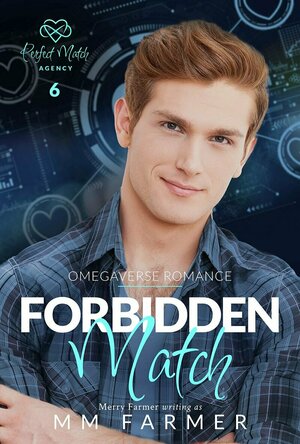
Forbidden Match (Perfect Match Agency #6)
Book
The Perfect Match Agency’s company policy is No dating in the workplace! Looks like Renn and...
Omegaverse MM Romance
BankofMarquis (1832 KP) rated Dungeons and Dragons: Honour Among Thieves (2023) in Movies
May 26, 2023
A Ton of Fun
The BankofMarquis is not into Dungeons & Dragons - the role playing/fantasy game that the film DUNGEONS & DRAGONS: HONOR AMONG THIEVES is based on, so any Easter Eggs for fans of the game is lost here. What the BankofMarquis is into is a good, fun action/adventure film and DUNGEONS AND DRAGONS: HONOR AMONG THIEVES is all that…and more.
The 4th film to be based on the RPG game, this D&D is no relation to the previous three and should be viewed as a reboot of the franchise…and if HONOR AMONG THIEVES is an indication of where this film series will go, then the audience is in for a fun ride, indeed.
Written and Directed by John Francis Daley and Jonathan Goldstein, D&D follows a smooth talking, good-looking musician (the perfectly cast Chris Pine), his tough-as-nails best friend (the perfectly cast Michelle Rodriguez) and their merry band of thieves as they go on a quest to right wrongs and achieve a goal.
What that goal is doesn’t really matter as it is the journey - not the destination - that matters and the journey is quite fun thanks to an enjoyable cast and a script and direction that evokes memories of THE PRINCESS BRIDE, THE LORD OF THE RINGS and, yes, MONTY PYTHON AND THE HOLY GRAIL along the way.
The cast (Pine, Rodriguez, Rege-Jean Page, Justice Smith, Sophia Lillis and Hugh Grant) know exactly what type of film they are making and jump in with both feet to have some fun, fight some creatures and make a family-friendly medieval action/adventure comedy that works.
Credit, of course, goes to Daley & Goldstein and this appears to be their first film together as Directors. If that is the case, the BankofMarquis is eager to see where they go from here.
While, I’m sure, there are plenty of Easter Eggs in this film for the D&D fan, the BankofMarquis caught none of that and just sat back and had a really fun 2+ hours, chuckling out loud on more than one occassion.
This film is now streaming on Paramount Plus. If you run across, check it out, you’ll have a good time.
Letter Grade: A-
8 stars (out of 10) and you can take that to the Bank(ofMarquis)
The 4th film to be based on the RPG game, this D&D is no relation to the previous three and should be viewed as a reboot of the franchise…and if HONOR AMONG THIEVES is an indication of where this film series will go, then the audience is in for a fun ride, indeed.
Written and Directed by John Francis Daley and Jonathan Goldstein, D&D follows a smooth talking, good-looking musician (the perfectly cast Chris Pine), his tough-as-nails best friend (the perfectly cast Michelle Rodriguez) and their merry band of thieves as they go on a quest to right wrongs and achieve a goal.
What that goal is doesn’t really matter as it is the journey - not the destination - that matters and the journey is quite fun thanks to an enjoyable cast and a script and direction that evokes memories of THE PRINCESS BRIDE, THE LORD OF THE RINGS and, yes, MONTY PYTHON AND THE HOLY GRAIL along the way.
The cast (Pine, Rodriguez, Rege-Jean Page, Justice Smith, Sophia Lillis and Hugh Grant) know exactly what type of film they are making and jump in with both feet to have some fun, fight some creatures and make a family-friendly medieval action/adventure comedy that works.
Credit, of course, goes to Daley & Goldstein and this appears to be their first film together as Directors. If that is the case, the BankofMarquis is eager to see where they go from here.
While, I’m sure, there are plenty of Easter Eggs in this film for the D&D fan, the BankofMarquis caught none of that and just sat back and had a really fun 2+ hours, chuckling out loud on more than one occassion.
This film is now streaming on Paramount Plus. If you run across, check it out, you’ll have a good time.
Letter Grade: A-
8 stars (out of 10) and you can take that to the Bank(ofMarquis)
Ali A (82 KP) rated The Bletchley Riddle in Books
Oct 14, 2024
Nineteen-year-old Jakob Novis and his fourteen-year-old sister, Lizzie, share a love of riddles and puzzles. As WWII gets closer and closer to Britain, the siblings find themselves amongst the greatest secrets of all - Britain’s codebreaking facility at Bletchley Park. As Jakob joins the country’s top minds to crack Nazi’s Enigma cipher, Lizzie transfers notes between departments in the park and tries to solve the mysterious disappearance of their mother in her off time.
While the Novis siblings work hard on their tasks, messages and codes begin to arrive under their doorstep. It doesn’t help that while they try to figure out if the messages are truly for them (and possibly from their mother), that there is an inspector lurking outside the gates of the park, watching Jakob and Lizzie’s every move. They must figure out a way to put their bickering aside and work together to decipher the clues if they want to uncover the answers to the puzzle.
As usual, I will pick up anything Ruta Sepetys touches and learn about a part of history I hadn’t known about before I read the book. This book is no exception as we take a deeper dive into the codebreakers Bletchley Park during WWII. I knew there were codebreakers during WWII, but what I didn’t realize is that they consisted of mathematicians, chess champions, and librarians (which, as a librarian, this absolutely makes sense why they were needed!).
Though this book is aimed at middle grade, I will say it felt like it would be more for upper middle grade / younger high school age. Lizzie is fourteen and Jakob is nineteen so their voices were a little older, but nothing major or graphic happened that would make the novel need to be young adult.
Even as an adult, when it came to the description of the codes’ breakthroughs or the ins and outs of the Enigma machines, I would get lost, but overall I just assumed the characters knew what they were talking about and trusted them.
Overall, I loved the twists and turns that kept the pages moving for me. I know I had a hard time as an adult solving the clues, so young readers who like spies and code cracking, are sure to love this too.
*Thank you Viking Books for Young Readers and BookishFirst for an advance copy of this book in exchange for an honest review
While the Novis siblings work hard on their tasks, messages and codes begin to arrive under their doorstep. It doesn’t help that while they try to figure out if the messages are truly for them (and possibly from their mother), that there is an inspector lurking outside the gates of the park, watching Jakob and Lizzie’s every move. They must figure out a way to put their bickering aside and work together to decipher the clues if they want to uncover the answers to the puzzle.
As usual, I will pick up anything Ruta Sepetys touches and learn about a part of history I hadn’t known about before I read the book. This book is no exception as we take a deeper dive into the codebreakers Bletchley Park during WWII. I knew there were codebreakers during WWII, but what I didn’t realize is that they consisted of mathematicians, chess champions, and librarians (which, as a librarian, this absolutely makes sense why they were needed!).
Though this book is aimed at middle grade, I will say it felt like it would be more for upper middle grade / younger high school age. Lizzie is fourteen and Jakob is nineteen so their voices were a little older, but nothing major or graphic happened that would make the novel need to be young adult.
Even as an adult, when it came to the description of the codes’ breakthroughs or the ins and outs of the Enigma machines, I would get lost, but overall I just assumed the characters knew what they were talking about and trusted them.
Overall, I loved the twists and turns that kept the pages moving for me. I know I had a hard time as an adult solving the clues, so young readers who like spies and code cracking, are sure to love this too.
*Thank you Viking Books for Young Readers and BookishFirst for an advance copy of this book in exchange for an honest review
